"We were all wrong": how Germany got hooked on Russian energy Analysis by The Guardian
The Guardian has published an article, saying that Germany has been forced to admit it was a terrible mistake to become so dependent on Russian oil and gas. So why did it happen?
Caliber.Az reprints the above-mentioned article.
On Sunday 1 February 1970, senior politicians and gas executives from Russia and Germany gathered at the upmarket Hotel Kaiserhof in Essen. They were there to celebrate the signing of a contract for the first major Russia-Germany gas pipeline, which was to run from Siberia to the West German border at Marktredwitz in Bavaria. The contract was the result of nine months of intense bargaining over the price of the gas, the cost of 1.2 million tonnes of German pipes to be sold to Russia, and the credit terms offered to Moscow by a consortium of 17 German banks. Aware of the risk of Russia defaulting, the German banks’ chief financial negotiator, Friedrich Wilhelm Christians, took the precaution of asking for a loan from the federal government, explaining: “I don’t do any somersaults without a net, especially not on a trapeze.”
The relationship would benefit both sides: Germany would supply the machines and high-quality industrial goods; Russia would provide the raw material to fuel German industry. High-pressure pipelines and their supporting infrastructure hold the potential to bind countries together, since they require trust, cooperation and mutual dependence. But this was not just a commercial deal, as the presence at the hotel of the German economic minister Karl Schiller showed.
For the advocates of Ostpolitik – the new “eastern policy” of rapprochement towards the Soviet Union and its allies including East Germany, launched the previous year under chancellor Willy Brandt – this was a moment of supreme political consequence. Schiller, an economist by training, was to describe it as part of an effort at “political and human normalization with our Eastern neighbours”.
The sentiment was laudable, but for some observers it was a potentially dangerous move. Before the signing, Nato had discreetly written to the German economics ministry to inquire about the security implications. Norbert Plesser, head of the gas department at the ministry, had assured Nato that there was no cause for alarm: Germany would never rely on Russia for even 10% of its gas supplies.
Half a century later, in 2020, Russia would supply more than half of Germany’s natural gas and about a third of all the oil that Germans burned to heat homes, power factories and fuel vehicles. Roughly half of Germany’s coal imports, which are essential to its steel manufacturing, came from Russia.
An arrangement that began as a peacetime opening to a former foe has turned into an instrument of aggression. Germany is now funding Russia’s war. In the first two months after the start of Russia’s assault on Ukraine, Germany is estimated to have paid nearly €8.3bn for Russian energy – money used by Moscow to prop up the rouble and buy the artillery shells firing at Ukrainian positions in Donetsk. In that time, EU countries are estimated to have paid a total of €39bn for Russian energy, more than double the sum they have given to help Ukraine defend itself. The irony is painful. “For thirty years, Germans lectured Ukrainians about fascism,” the historian Timothy Snyder wrote recently. “When fascism actually arrived, Germans funded it, and Ukrainians died fighting it.”
When Putin invaded Ukraine in February, Germany faced a particular problem. Its rejection of nuclear power and its transition away from coal meant that Germany had very few alternatives to Russian gas. Berlin has been forced to accept that it was a cataclysmic error to have made itself so dependent on Russian energy – whatever the motives behind it. The foreign minister, Annalena Baerbock, says Germany failed to listen to the warnings from countries that had once suffered under Russia’s occupation, such as Poland and the Baltic states. For Norbert Röttgen, a former environment minister and member of Angela Merkel’s Christian Democrat Union (CDU), the German government bowed to industry forces pressing for cheap gas “all too easily”, while “completely ignoring the geopolitical risks”.
In February this year, German Green economic affairs and climate action minister Robert Habeck said that gas storage facilities owned by Gazprom in Germany had been “systematically emptied” over the winter, to drive up prices and exert political pressure. It was a staggering admission of Russia’s power to disrupt energy supplies.
“I was wrong,” the former German finance minister, Wolfgang Schäuble, says, simply. “We were all wrong.”
In recent weeks even Frank-Walter Steinmeier, the German president, a totemic figure of the Social Democrats and greatest German advocate of the trade “bridge” between east and west, has recanted. He admits he misread Russia’s intentions as he pursued the construction of a new undersea gas pipeline. “My adherence to Nord Stream 2 was clearly a mistake,” he told German media in April. “We held on to bridges that Russia no longer believed in, and that our partners warned us about.” This is an extraordinary admission for a man who acted as chief of staff to Gerhard Schröder, the Social Democratic chancellor from 1998 to 2005 and thereafter a lavishly rewarded, and much reviled, lobbyist for Vladimir Putin. Steinmeier was also foreign minister under Chancellor Merkel, and a great evangelist for Wandel durch Handel, the concept that trade and dialogue can bring about social and political change.
How did Germany end up making such a blunder? Some argue that Merkel should have seen that Putin was taking Russia in an authoritarian direction when he announced his return to the presidency in 2011. After Russia’s invasion of Ukraine in 2014, Germany made no move to stop importing Russian gas, and although Merkel threatened to introduce crippling trade sanctions, German industry convinced her to hold back. But some blame a more persistent misjudgment stretching back 50 years, based on a fallacy that authoritarian countries can be transformed through trade.
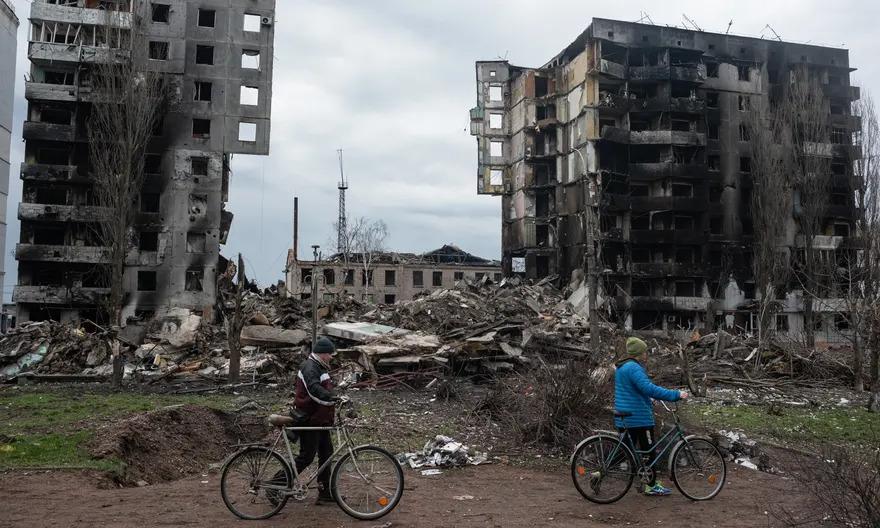
The Social Democrats have now set up a review into whether the policy of Ostpolitik, first laid out in a landmark speech in July 1963 by Egon Bahr, then chancellor Willy Brandt’s closest adviser, became deformed over time – especially after securing its great achievement, the fall of the Berlin Wall.
What is extraordinary, retracing the history through memoirs and contemporary records, is how frequently and determinedly Germany was warned, by everyone from Henry Kissinger onwards, that it was making a pact it might live to regret. Kissinger wrote to Richard Nixon on 9 April 1970: “Few people, either inside Germany or abroad, see Brandt as selling out to the East; what worries people is whether he can control what he has started.” Over 50 years, Germany fought numerous battles with a series of US presidents over its growing dependence on Russian energy. In the process, Germany’s foreign office developed a view of American anti-communism as naive, and a belief that only Germany truly understood the Soviet Union.
From the late 1960s, the Federal Republic of Germany tried to open its own direct line of communication with the Soviet leadership, even though its interest in reunification created tensions with the US. When it faced criticism from the US, Germany was wont to cite its unique status. “I cannot imagine there is anyone more interested in being allowed to continue working for detente and balance in Europe than the German people who are forced to live in two states,” Hans-Dietrich Genscher, then the foreign minister, told the German Bundestag in January 1980, to great applause.
But after the fall of the Berlin Wall in 1989, why was Germany still so reluctant to listen to others? A sense of guilt for the atrocities committed against the Soviet Union during the second world war may have played a role. Pride, too, that – through Ostpolitik – it had mended its relations with Moscow. Germany, in a sense, became a double prisoner of its past – bound both to the horrors it had committed, and to its belief that its response to those horrors was correct.
he conflicts between Germany and the US in the 70s and 80s, involving two very different presidents, Jimmy Carter and Ronald Reagan, were some of the most rancorous transatlantic battles since the second world war. “The disputes were all part of West Germany showing independence in foreign policy during the cold war, and that became uncomfortable for some American leaders,” the historian Mary Elise Sarotte said to me.
Carter and the German chancellor Helmut Schmidt had little respect for each other. Carter found Schmidt moody, while the chancellor, in his autobiography, dismissed Carter as an idealistic preacher, who knew nothing of Europe and was “just not big enough for the game”. The two leaders did not just grate personally, they disagreed on issues of substance – including how to protect human rights in Russia. In 1979 Schmidt and Carter came together to jointly adopt the so-called dual track decision, by which Nato would upgrade its nuclear weapons based in Europe, while actively seeking an arms control agreement with Russia. But in other ways their approach was very different.
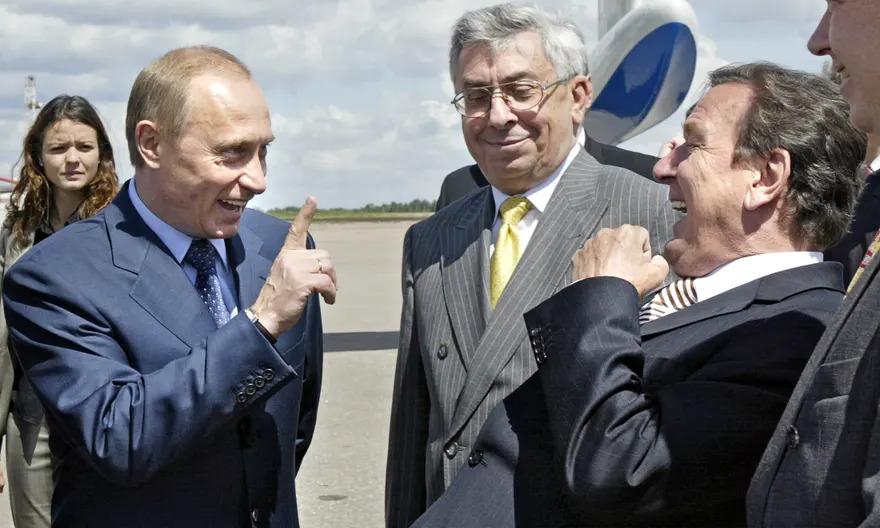
Carter, by contrast, saw withholding trade as the better way to influence the Soviets. In July 1978, responding to Moscow’s imprisonment of two Soviet dissidents, Aleksandr Ginzburg and Anatoly Shcharansky, Carter restricted US exports of technology for the exploration and development of the Soviet oil and natural-gas industries.
Yet, collectively, European business went in the opposite direction. Even after the Soviet invasion of Afghanistan in 1979, a large German business delegation went ahead with a visit to Moscow. The Soviets (Soyuzgazexport) and western Europeans (chiefly Ruhrgas and Gaz de France) completed negotiations on a new giant gas project, a 4,500km dedicated pipeline from the giant Urengoy field in West Siberia in late 1980. This deal was projected to increase Germany’s dependence on Russian gas from 15% to 30%. When German ministers reviewed the security implications, they concluded there was no danger of Russia misusing its potential stranglehold. Their reasoning was simple. “Long-term disruption would be against the self-interest of the Soviet Union,” the ministry decided.
In 1980, Schmidt wrote: “To speak of the Federal Republic’s economic dependence on Moscow to a degree large enough to affect foreign policy indicates ignorance or malice.” Given Germany’s plight now, those words look hopelessly misjudged.
Schmidt faced a more challenging opponent in Carter’s successor, the traditional anti-communist Ronald Reagan. In Reagan’s eyes, German trade with Russia was in direct conflict with western security. Reagan’s view was informed by a CIA assessment submitted in July 1981, which noted a clear trend: from 1970 to 1980, Soviet gas exports to western Europe had risen from 1 billion cubic metres (bcm) a year to 26.5bcm annually. The CIA warned Reagan that the Urengoy gas project would not only accelerate Soviet economic growth, but provide the Soviets with $8bn in hard currency, facilitating a further military buildup. Far from giving Germany sway over Soviet thinking, “it would provide the Soviets one additional pressure point they could use as part of a broader diplomatic offensive to persuade the West Europeans to accept their viewpoint on East-West issues”.
In arguments that echo today’s debates, the US ambassador to the UN, Jeane Kirkpatrick, complained: “We consistently find in our talks the allies are already significantly dependent: France for 15% [of its] gas, Germany for 30%.” Schmidt assured the Americans that Germany “can go six months in the event of a Soviet cut-off”. The forecast now is that, in such an eventuality, Germany would have to go straight to a form of energy rationing.
Despite various US efforts to persuade Europe to adopt a voluntary ban, including offering alternative sources of energy, in 1981 Ruhrgas AG and Soyusgazexport went ahead and signed a contract for annual imports of 10.5bcm of Soviet gas over a 25-year period. Unemployment in Europe was close to 9% at the time, and European industry needed to boost its energy supplies. At the same time, the US argument about security was dismissed as a veiled way of promoting the US oil industry.
When Moscow backed the imposition of martial law in Poland on 13 December 1981, Reagan thought such a shocking event might persuade Germany to put the pipeline on hold. In a private note to Margaret Thatcher, sent on 19 December 1981, he urged her to back tough sanctions against the Soviets, stating that “this may well be a watershed in the history of mankind. A challenge to tyranny from within.” Unusually for her, Thatcher vacillated, advising Reagan that the Germans “cannot and will not give up the gas pipeline project”.
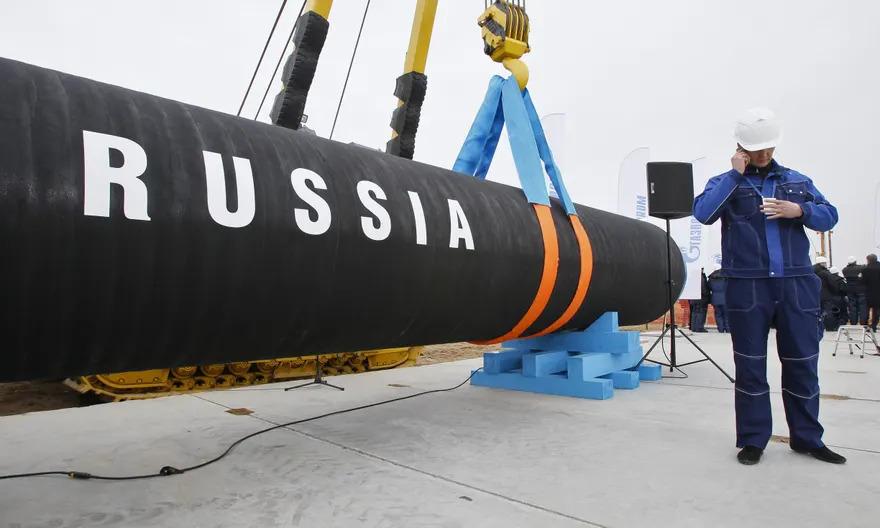
The US responded to the Soviet intervention by banning US companies from helping with the pipeline. In the summer of 1982 Reagan tried to force European firms to stop working on the pipeline by imposing secondary sanctions on them. Such sanctions are now a commonplace in the US foreign policy armoury, particularly over Iran, but then, they were seen as an incursion into European sovereignty. Thatcher bridled, telling the Commons “it is wrong” for “one very powerful nation [to] prevent existing contracts being fulfilled”.
By November, Reagan had abandoned the attempt to impose sanctions. In a trial of strength in which Europe sided with Germany, the world’s superpower had lost. The new pipeline started pumping on 1 January 1984.
The German advocates of change through trade had won. The US position on Russia was further weakened when the Berlin Wall fell in 1989. The peaceful collapse of communism was trumpeted as a vindication for those that had championed dialogue, and engagement through trade. In a speech to the Brandt Foundation in March 2008, Steinmeier gave full vent to this view: “What Ostpolitik in fact achieved – as is now recognised also by those who criticised it at the time,” he said, “was to make peace in Europe, despite the difficulties, a degree more secure. For the democracy movements in eastern Europe it created new possibilities, new scope for action. It was a key factor, too, in finally ending the confrontation between the two blocs.”
Olaf Scholz, Germany’s current chancellor, remains an adherent of this view, arguing last year that it contributed to the fall of the Soviet Union and laid the basis for democracy and EU membership for much of eastern Europe. The SPD co-leader, Lars Klingbeil, has also insisted that Ostpolitik “was the basis for reunification and the end of the cold war. As a result, there has been a consensus in the federal republic for decades that conflicts can be defused through dialogue. We won’t let that be bad-mouthed.”
Yet a number of historians and writers believe that this rosy picture of Ostpolitik is misleading. “The idea that Willy Brandt’s policy of detente towards Moscow led in a straight line to the fall of the iron curtain and German unity is at least an over-simplification,” says the historian Jan Behrends. German journalist Thomas Urban, author of a new book critiquing Ostpolitik, believes its role in the fall of the wall and German reunification has been exaggerated: “It was military buildup by Reagan and the flooding of the market with cheap oil that led to the collapse of the Soviet Union,” he told me. The Russian government budget had grown so dependent on energy for its revenue, he said, that when the price of oil plummeted in the mid-1980s, Russia’s lifeline to external capital dried up. “Gorbachev could no longer fund the overseas wars and the Soviet Republics,” he said. “But this argument was entirely missing in the German debate, especially on the left.”
Schröder, at the time of Putin’s address, saw a perfect confluence of interests between Europe, Germany and Russia: peace, stability, multilateralism and economic growth. Putin, Schröder was convinced, “wants to transform Russia into a democracy”.
In this favourable political climate, pro-Russian German lobbyists such as Klaus Mangold, chairman of the powerful German Committee on Eastern European Economic Relations, pursued the construction of yet another gas pipeline, this time taking gas from Vyborg under the Baltic Sea to Germany – the first Nord Stream. The scheme was especially controversial since it would bypass Poland, Belarus and Ukraine, reducing those countries’ incomes, weakening their bargaining power and depriving them of badly needed transit fees. The €7.4bn pipeline construction costs were to be borne by the private German companies BASF and E.ON, and the majority Russian state-owned Gazprom.
This time, protests against the pipeline did not just come from the US, but from the states that had recently emerged from Soviet rule, such as Poland and Lithuania. Radosław Sikorski, then Poland’s defence minister, notoriously compared the plan to the 1939 Molotov-Ribbentrop non-aggression pact between Nazi Germany and the Soviet Union, which paved the way for the invasion of Poland.
Yet on 8 September 2005, 10 days before the election in which Schröder’s Social Democrats lost to Angela Merkel’s conservatives, the Nord Stream 1 contract was signed in Berlin by representatives of Gazprom, E.ON and BASF. Putin stood alongside Schröder at the signing ceremony.
Schröder has since been singled out for his role in creating Germany’s dependence on Russian energy, and getting very rich in the process. But the distinguished former German diplomat Wolfgang Ischinger recently argued that Schröder should not take the blame for giving the go-ahead to Nord Stream 20 years ago: most German politicians, he told the New York Times in April, did not question whether they were getting into an unhealthy dependence on Russian energy. In the article, Schröder made the same case: “It never occurred to anyone that this could become a problem. It was just a way of procuring gas for Germans, for Germany’s heavy industry, and also for the chemical industry, with fewer problems and disruptions.”
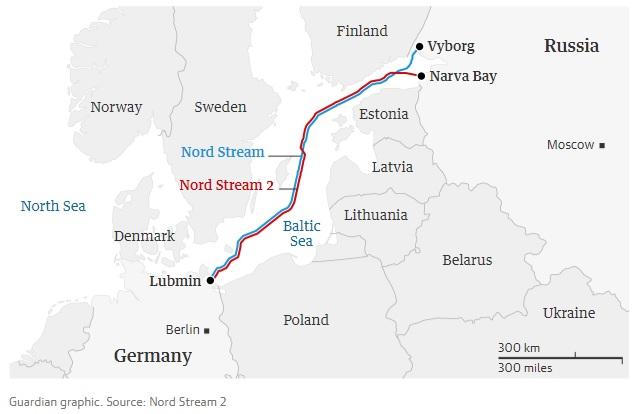
Following the 2014 invasion, serious German media such as Frankfurter Allgemeine Zeitung published lengthy articles looking at the options for how Germany could wean itself off its dangerous dependency on Russian energy. Many of the proposals, such as new liquid gas terminals to allow Germany to import gas from other countries such as Qatar and the US, are the same ones under discussion now, which shows how little actual diversification was achieved. When I spoke to a Qatari energy official last month, he recounted how they spent five years trying to break into the German energy market, only to find their route blocked at every turn.
Some German sanctions on Russia continued for many years, but the advocates of change through trade gradually re-established their ground. It seemed nothing Russia could do would shake their confidence. On 4 September 2015, at the Vladivostok economic forum, with Putin in attendance, an agreement was signed for the construction of the Nord Stream 2 gas pipeline on the Baltic seabed, which would vastly increase Germany’s reliance on Russian natural gas. Gazprom would also take over Germany’s gas storage business, thereby handing control of German energy reserves to a foreign power.
arious theories – some grubby, some metaphysical – have been proposed to explain Germany’s dogged refusal to see the dangers in its dependency on Russia. One argument places the blame on SPD politicians and civil servants who were allowed to move seamlessly between public office and Putin’s employment, and worked hard to manipulate the EU and German regulatory environment to suit Gazprom.
Then there is the question of the German-Russian industrial lobby, as symbolised by the German-Russian Forum, which was closely linked with, and partly funded by, German companies active in Russia. (The Forum was suspended after the invasion of Ukraine.) Its board of trustees consisted mainly of business people, often with economic interests in Russia. Its chairman, Matthias Platzeck, the former SPD minister president of Brandenburg, seemed genuinely shocked by Putin’s invasion: “I was wrong because until recently I thought what happened was unthinkable.”
The historian Sarotte said there is no clear evidence that business had exerted greater influence in politics in Germany than in other countries. Nevertheless, over the years, Russia showed an ability to suborn, and in some cases corrupt, the German political class. The Polish foreign minister, Zbigniew Rau, on a visit to Berlin in late May, called German Ostpolitik a “fiasco”. German rhetoric around the political value of interdependence, he said, crudely boiled down to gaining a competitive advantage through cheap energy.
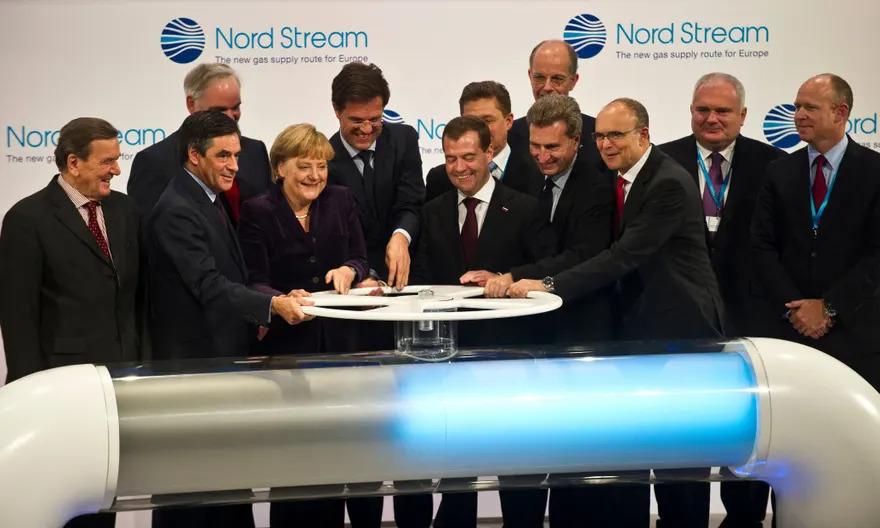
Thomas Urban, examining the psychological roots of Ostpolitik, pinpoints two emotions in Germany’s relationship with Russia: nostalgia and guilt. He described to me “the memory of Bismarck, who saw the alliance with Russia as an anchor of stability in Europe. But then there was also the feeling of guilt because of the German attack on the Soviet Union in 1941, with millions of dead. It meant it was difficult to criticise the Red Army or the Soviet repression since to do so means you do not recognise the greatest crimes in history. It makes Germany blind to the black side of the Soviet Union. It also permits Putin’s propaganda by talking only of the Russian war dead, and not those that were killed in Ukraine and Belarus.”
Much of Germany’s belief in trade with Russia was born of wishful thinking. It led Steinmeier as foreign minister, for instance, to look constantly for signs of reform, ignoring foreign office advice that he needed a plan B in case Germany’s faith in Russia turned out to be ill-founded. In 2016, Steinmeier gave a deeply sincere, almost elegiac speech at Yekaterinburg University asking whether Germany and Russia were still capable of listening to one another. He admitted the annexation of Ukraine had been a low point, but hoped dialogue was still possible, urging both sides not to turn their backs on one another.
It was the speech of a man who sensed the tide was going out, and who feared his belief in dialogue no longer matched the spirit of harsher times: “In political discussions, we sometimes hear opinions expressed by people who are not interested in the slightest in understanding others; people who have already made up their minds about the other side; people who don’t even bother reading because they think they already know the answer.” What he described as the “supposed antagonism” between the west and Russia, he feared was becoming entrenched and ideologically driven, running counter to the pursuit of diplomacy and peace.
Now, as Germany’s president and head of state, Steinmeier has been told by Ukrainian officials that his record as the promoter of Russian interests in Germany means he is not welcome in Kyiv at this time. It seems a shame. There would be no need for him to fall to his knees – as Willy Brandt did in Warsaw in 1970, apologising for his nation’s wartime crimes – but he could give a sober reflection on what precisely went wrong with Germany’s eastern policy for so long. For, one way or another, a reckoning is still needed.








